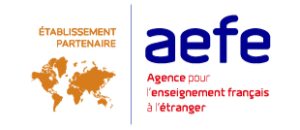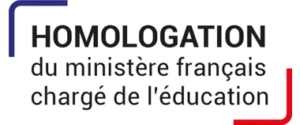What curriculum does EFIP follow at kindergarten?
At EFIP, the kindergarten follows a specific curriculum, which is part of the official educational framework established by the Ministry of National Education. This curriculum is designed to help children develop the key skills and knowledge necessary before transitioning to primary school.
What curriculum does EFIP follow at elementary school?
At EFIP, the elementary school follows a specific curriculum set by the Ministry of National Education, designed to provide a structured education across various subjects, ensuring students acquire the essential knowledge and skills. In addition to this, the EFIP curriculum is enhanced to offer a robust multilingual education. EFIP adopts an innovative approach that goes beyond traditional language teaching, immersing students in a multilingual environment. As part of this approach, certain subjects, such as mathematics (in part), are taught in English or Albanian (as a second language, after French), promoting a transdisciplinary use of foreign languages.
What curriculum does EFIP follow at middle school?
The middle school curriculum at EFIP is designed according to the guidelines set by the Ministry of National Education. Its aim is to provide a comprehensive education across a wide range of subjects, ensuring that students develop the foundational knowledge and skills necessary for their future education and life. The curriculum prepares students for the transition to high school, where they will specialize in subjects aligned with their interests and future career goals. At the end of middle school, EFIP students take the Diplôme National du Brevet, a national diploma exam, which is held in Sofia, Bulgaria. The courses are supported by the CNED (Centre National d’Enseignement à Distance).
What curriculum does EFIP follow at high school?
At EFIP the curriculum for high school (general) is structured to provide students with an in-depth, specialized education as they prepare for higher education. The curriculum is designed by the Ministry of National Education and is divided into three years. The first year of high school offers a broad curriculum, where students continue studying a wide range of subjects. At the end of first year, students choose their specialisation based on their interests and future career plans. This decision will determine their subjects for the next two years. The courses are supported by the CNED.
Specialisations – students specialize in one of the following tracks:
- Literary (L):
Focuses on literature, philosophy, foreign languages, history-geography, and arts.
- Scientific (S):
Focuses on science and mathematics, preparing students for careers in medicine, engineering, and research. Subjects include mathematics, physics, chemistry, biology, and computer science.
- Economic and Social Sciences (ES):
Combines economics, social sciences, and mathematics. Students study subjects such as economics, sociology, mathematics, history-geography, and philosophy.
At the end of high school, students take the Baccalauréat (commonly called the Bac), which is a set of national exams determining whether they will graduate from lycée and be eligible for university or higher education.
Do EFIP middle school students take the Diplôme National du Brevet?
Yes, EFIP middle school students prepare for and take the Diplôme National du Brevet (DNB) exam at the end of their middle school education (Grade 9). The DNB is a national diploma that evaluates their knowledge and skills before transitioning to high school. The exam is held at the Lycée Français de Sofia in Bulgaria, which serves as the official exam center.



